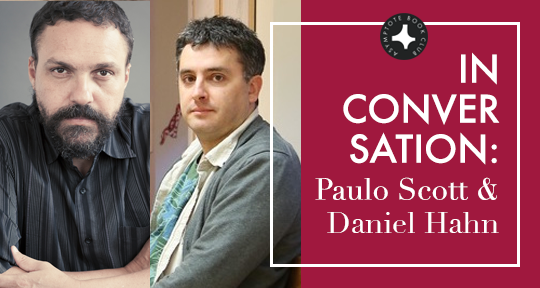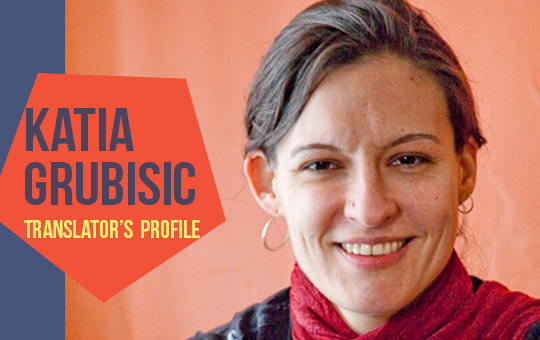In the electrifying novel Phenotypes, Paulo Scott takes on the complex subject of Brazil’s racism and colorism, dispelling rosy myths of the country as one of harmonious multiculturalism. In a story of two brothers—Lourenço and Federico, the former dark-skinned and the latter light—the intricacies of privilege, identity, activism, and guilt are brilliantly explored in Scott’s unmistakable blend of length and lyric, bringing to the page some of the most urgent and daunting questions of our time. We are honored to host this title as our Book Club selection for January, and also to have spoken live to Scott and translator Daniel Hahn about the novel’s nuances, regionality, and language.
The Asymptote Book Club aspires to bring the best in translated fiction every month to readers around the world. You can sign up to receive next month’s selection on our website for as little as USD15 per book; once you’re a member, join our Facebook group for exclusive book club discussions and receive invitations to our members-only Zoom interviews with the author or the translator of each title.
Rachel Farmer (RF): One of the main themes of Phenotypes is what constitutes an activist approach to the many problems portrayed in the novel. Paulo, could you talk about what inspired you to write about activism in this way?
Paulo Scott (PS): Well Rachel, I come from Southern Brazil, which is a very racist region. My family is black, upper-middle class—you know, the kind of family that is in a position to speak out against this racism. So I took the truth of my family to create fiction. My brother is black—real black—and I have this lighter skin. But I see myself as a black man. My mother might deny it now, but as I remember, she always said that we were a black family.
I think that this book is both one of anger and of self-reflection. The protagonist found a place in the heart of anger to build a very specific story for himself, then at some point, he got lost in this fight against racism. He believed himself to be really strong, he saw his father as a very strong man, and he thought that his father’s power was in this anger, his rage against the world—but it wasn’t. Instead, the fact is that his father could understand the complexity of racism, like [Martin Luther] King [Jr.].
There is a connection between the members of this family: father, grandfather, son, and granddaughter—Roberta, the niece of the protagonist. They are almost the same entity, as three different movements of the same vision. The story ends with Roberta sleeping in the back seat of the car because she’s the future. I could have written a book about Roberta, for efficiency’s sake, but this is not a book of answers; this is a book of questions. The racism in Brazil is very, very strong, and it’s still a taboo topic here. The suffering is so pervasive that some readers struggle to see themselves in this mirror.
RF: Were certain characters—such as that of the mother—inspired directly by the memories of your own family?
PS: My brother was the coach of my state’s basketball team, and he is a really dark-skinned man. He’s not afraid to be with white people—powerful people. He’s black, but he’s in that club of the upper-class, and he doesn’t accept any disrespect. That’s really strong. READ MORE…


